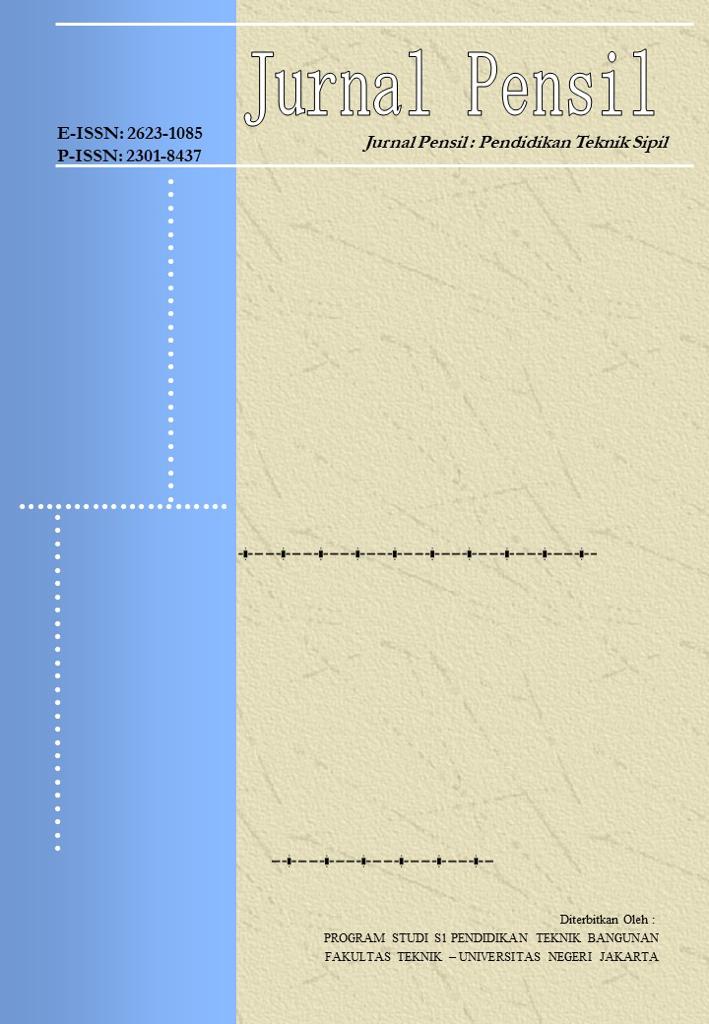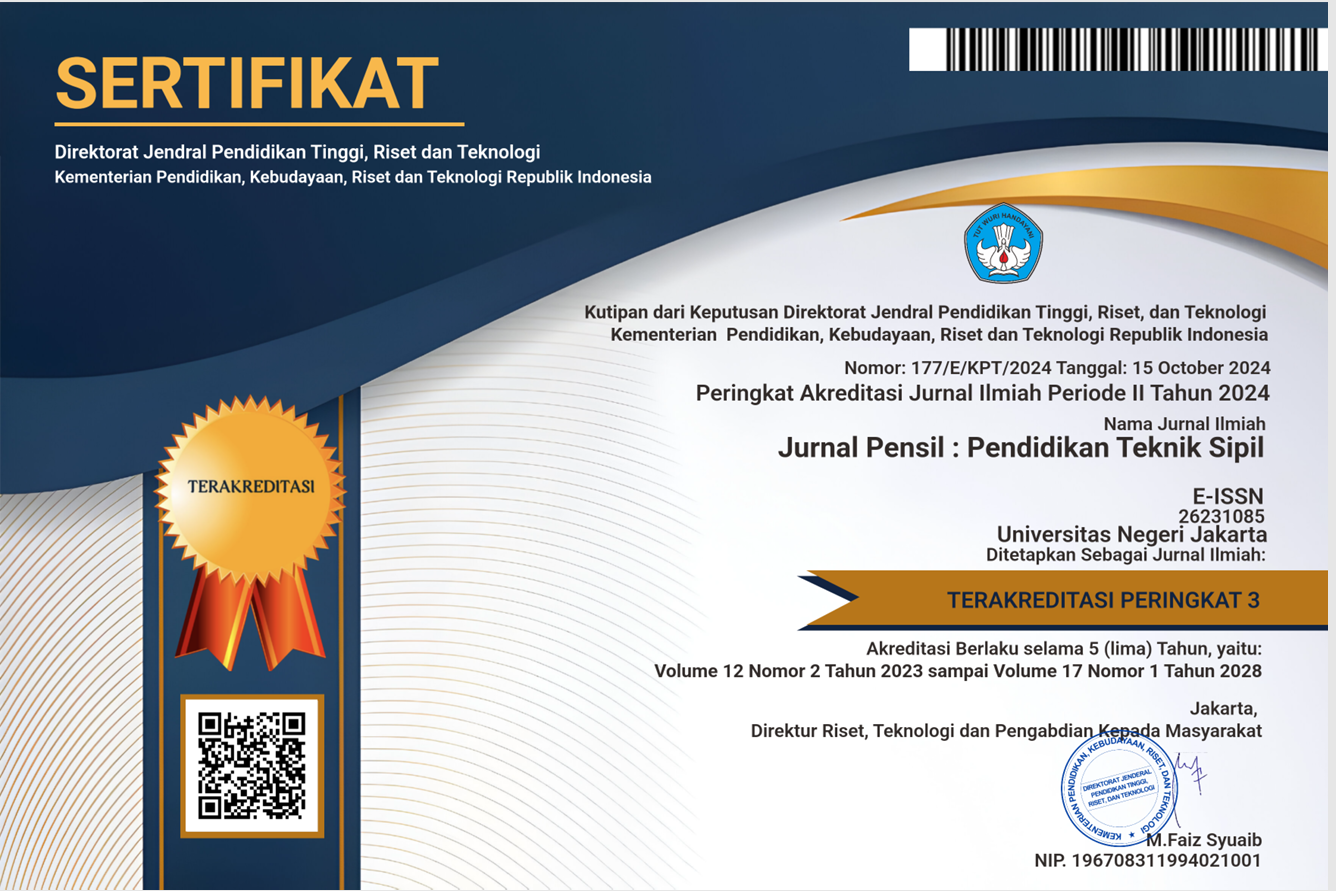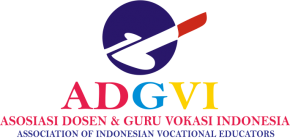IMPROVING THE QUALITY OF WORK ON CULVERT UNDERPASS BOX STRUCTURES USING THE LEAN SIX SIGMA METHOD
DOI:
https://doi.org/10.21009/jpensil.v14i1.45230Keywords:
Box Culvert, Lean Six Sigma, RII, Quality, DefectAbstract
Underpass is an infrastructure built by the government below the ground level to alleviate traffic congestion in large cities. The box culvert system serves as the construction for underpasses. The selection of this system has a significant impact on quality as it will affect the quality of work. The BSD underpass project on the Serpong - Balaraja toll road (Interchance Legok Area STA 9+800) needs to improve its quality because the results of the work do not meet the required standards. The aim of this research is to determine the most influential factors in the quality of underpasses and the implementation of lean six sigma. The research utilizes the Relative Importance Index (RII) method and the Lean Six Sigma method. From the research results, it was found that the most influential factor is ensuring that every incoming material meets the desired quality standards in the quality control variable. In addition, the analysis using Lean Six Sigma in Box Culvert work resulted in a DPMO value of 6058 per one million or equivalent to 4.133 sigma with a yield of 99.39%, thus requiring evaluation through the the DMAIC method Define – Measure – Analyze – Improvement – Control) to reduce defects and improve quality.
References
Abdul Mail, Syarifudin, A., & Cahyadi, S. (2019). Usulan Perbaikan Untuk Meminimasi Waste Pada Produk Steel Structure Dengan Metode Lean Six Sigma. Jurnal InTent : Jurnal Industri Dan Teknologi Terpadu, 2(2), 103–112.
Al Amri, A. A. M., & Oztemir, A. E. (2022). Delay Factors of Construction Projects in Oman. Technium: Romanian Journal of Applied Sciences and Technology, 4(8), 1–10. https://doi.org/10.47577/technium.v4i8.7238
Allo, R. I. G., & Bhaskara, A. (2022). Waste Material Analisys With the Implementation of Lean Construction. Jurnal Teknik Sipil, 18(2), 343–355. https://doi.org/10.28932/jts.v18i2.4494
Alwi, S., Hampson, K., & Mohamed, S. (2002). Waste in the Indonesian Construction Project. Proceedings of the 1st International Conferences of CIB W107 – Creating a Sustainable Construction Industry in Developing Countries, January 2014, 305–315.
Andi, Susandi Susandi, & Hendra Wijaya. (2003). on Representing Factors Influencing Time Performance of Shop-House Constructions in Surabaya. Civil Engineering Dimension, 5(1), 7–13. https://ced.petra.ac.id/index.php/civ/article/view/15563/15555
Andraiko, H., & Dwiyanto, P. (2023). Jurnal Teknik Sipil 1 Jurnal Teknik Sipil. Jurnal Teknik Sipil, 12(1), 1–8. https://doi.org/10.24815/jts.v12i1.27538
Anggraini, W. (2022). About the JournalImplementation of Lean Construction to Eliminate Waste: A Case Study Construction Project in Indonesia. Laboratory Medicine, 23(2), 113. https://doi.org/10.1093/labmed/lmac163
Ayu, E. S. (2017). Faktor penyebab peningkatan biaya material pada pelaksanaan pada proyek konstruksi di sumatra barat. Rekayasa, 07(02), 193–203. https://jurnalrekayasa.bunghatta.ac.id/index.php/JRFTSP/article/view/17/14
Bahauddin, A., & Latif, M. R. (2022). Pengendalian kualitas base oil menggunakan metode six sigma. Journal Industrial Servicess, 7(2), 269. https://doi.org/10.36055/jiss.v7i2.14401
Bajjou, M. S., Chafi, A., & En-Nadi, A. (2017). A comparative study between lean construction and the traditional production system. International Journal of Engineering Research in Africa, 29, 118–132. https://doi.org/10.4028/www.scientific.net/JERA.29.118
Bhaskara, A., Ginting, A. A., & Masagala, A. M. (2022). Penerapan Konstruksi Ramping terhadap Waste pada Ruang Lingkup Manajemen Proyek (Studi Kasus: Proyek Pembangunan Gedung Auditorium di Yogyakarta). Semesta Teknika, 25(1), 80–88. https://doi.org/10.18196/st.v25i1.13403
Darmawan, M. B., & Yuwono, B. E. (2021). Faktor Keterlambatan Proyek Konstruksi Gedung Bertingkat Pada Masa Pandemi. 2(2), 168–173. https://doi.org/10.25105/psia.v2i2.10330
Darmawi, D., Muttaqin, M., & Rauzana, A. (2020). Identifikasi Faktor–Faktor Utama Penyebab Terjadinya Keterlambatan Waktu Penyelesaian Pada Pekerjaan Infrastruktur Gedung Di Banda Aceh. Jurnal Arsip Rekayasa Sipil Dan Perencanaan, 3(1), 70–79. https://doi.org/10.24815/jarsp.v3i1.16456
Dundu, A. K. T., & Walangitan, R. (2016). Faktor – Faktor Yang Menyebabkan Cost Overrun Pada Proyek Konstruksi. 4(10). https://ejournal.unsrat.ac.id/index.php/jss/article/view/13760
Dwinanda, N., Eka Priana, S., & Herista, F. (2023). Analisis Faktor-Faktor Penyebab Keterlambatan Pelaksanaan Pekerjaan Proyek Konstruksi Tahun 2021 Di Kabupaten Lima Puluh Kota. 2(2), 175–180. https://doi.org/10.33559/err.v2i2.1715
Han, S. H., Chae, M. J., Im, K. S., & Ryu, H. D. (2008). Six Sigma-Based Approach to Improve Performance in Construction Operations. Journal of Management in Engineering, 24(1), 21–31. https://doi.org/10.1061/(asce)0742-597x(2008)24:1(21)
Hussain, K., He, Z., Ahmad, N., Iqbal, M., & Taskheer mumtaz, S. M. (2019). Green, lean, Six Sigma barriers at a glance: A case from the construction sector of Pakistan. Building and Environment, 161(March). https://doi.org/10.1016/j.buildenv.2019.106225
Inkubator penulis indonesia, P. (n.d.). buku Struktural Equation Modeling (SEM) konsep dasar dan aplikasi program Smart PLS 3.2.8 dalam riset bisnis.
Ishak, A., Mohamad, E., Arep, H., Linarti, U., & Larasti, A. (2022). Application of Lean Six Sigma for Enhancing Performance in the Poultry Wastewater Treatment. Journal of Advanced Manufacturing Technology, 16(2), 53–66.
Khadifa, R. (2017). Analisis Pengembangan Jalan Tidak Sebidang (Underpass) Di Jalan Raya Terisi Kabupaten Indramayu. Jurnal Konstruksi Unswagati Cirebon, 6(12), 129–140. http://jurnal.ugj.ac.id/index.php/Konstruksi/article/view/3773
Latief, Y., & Utami, R. P. (2010). Penerapan Pendekatan Metode Six Sigma Dalam Penjagaan Kualitas Pada Proyek Konstruksi. MAKARA of Technology Series, 13(2), 67–72. https://doi.org/10.7454/mst.v13i2.471
Lee, K.-L., & Su, Y. (2013). Applying Six Sigma to Quality Improvement in Construction. Journal of Management in Engineering, 29(4), 464–470. https://doi.org/10.1061/(asce)me.1943-5479.0000155
Makwana, A. D., & Patange, G. S. (2021). A methodical literature review on application of Lean & Six Sigma in various industries. Australian Journal of Mechanical Engineering, 19(1), 107–121. https://doi.org/10.1080/14484846.2019.1585225
Naziihah, A., Arifin, J., & Nugraha, B. (2022). Identifikasi Waste Menggunakan Waste Assessment Model (WAM) di Warehouse Raw Material PT. XYZ. Jurnal Media Teknik Dan Sistem Industri, 6(1), 30. https://doi.org/10.35194/jmtsi.v6i1.1599
Niñerola, A., Sánchez-Rebull, M. V., & Hernández-Lara, A. B. (2021). Six Sigma literature: a bibliometric analysis. Total Quality Management and Business Excellence, 32(9–10), 959–980. https://doi.org/10.1080/14783363.2019.1652091
Nur, M., & Husin, A. E. (2020). Success Factors for Lean Six Sigma Implementation and Time Cost Trade off in High Rise Office Buildings to Improve Cost and Time Performance. Budapest International Research and Critics Institute-Journal (BIRCI-Journal), Volume 5 N, 28296–28310. https://doi.org/10.33258/birci.v5i3.6910
Permatasari, A. I., Profita, A., & Gunawan, S. (2021). Evaluasi Metode Lean Project Management Pada Proyek Pelaksanaan Pembangunan Tangki Premium, ADO, dan RFO di Pertamina RU V Balikpapan (Studi Kasus: PT. Barata Indonesia (Persero). JIME (Journal of Industrial and Manufacture Engineering), 5(1), 30–40.
Proboyo, B. (1999). Keterlambatan waktu pelaksanaan proyek klasifikasi dan peringkat dari penyebab-penyebabnya. Civil Engineering Dimension, 1(1), 46–58. https://ced.petra.ac.id/index.php/civ/article/view/15507/19974
Putra, D. M. (2022). Penyebab Keterlambatan Dalam Pelaksanaan Gedung Sekolah Bertingkat Di Serang. Jurnal Deformasi, 7(2), 204. https://doi.org/10.31851/deformasi.v7i2.9056
Rahmayana, P. E., Purba, H. H., & Susetyo, B. (2021). Improving Ballastless Track Quality Using Project Quality Management and SmartPLS. ComTech: Computer, Mathematics and Engineering Applications, 12(1), 19–32. https://doi.org/10.21512/comtech.v12i1.6616
Robi, M., Kusnandar, D., & Sulistianingsih, E. (2017). Penerapan Structural Equation Modeling (SEM). Buletin Ilmiah Mathematika, Statistik Dan Terapannya, 6(2), 113–120. https://jurnal.untan.ac.id/index.php/jbmstr/article/view/21621/17498
Ruslim, S. N., Hermawan, C. T., & Limanto, S. (2023). Analisis Penyebab, Dampak, Dan Antisipasinya Terhadap Keterlambatan Proyek Konstruksi Di Surabaya. Jurnal Dimensi Pratama Teknik Sipil, 12(1), 71–78. https://publication.petra.ac.id/index.php/teknik-sipil/article/view/13437
Ruwiyanto, S., Rizwan, R., Romadhon, T., & Fauzi, M. (2021). Implementasi Lean Six Sigma Dalam Mengurangi Breakdown Maintenance Pada Sistem Automatic Length Control Di Pt Xyz Menggunakan Metode Dmadv. Jurnal Lebesgue : Jurnal Ilmiah Pendidikan Matematika, Matematika Dan Statistika, 2(3), 342–350. https://doi.org/10.46306/lb.v2i3.104
Shaqour, E. N. (2022). The impact of adopting lean construction in Egypt: Level of knowledge, application, and benefits. Ain Shams Engineering Journal, 13(2). https://doi.org/10.1016/j.asej.2021.07.005
Simamora, G., Toyfur, M. F., & Heni Fitriani. (2023). Identifikasi Waste Proyek Infrastruktur Transmisi Listrik Dengan Value Stream Mapping. JMTS: Jurnal Mitra Teknik Sipil, 6(2), 191–206. https://doi.org/10.24912/jmts.v6i2.21179
Sindhwani, R., Vaidya, O. S., Antony, J., & Shokri, A. (2021). Evaluating Performance of Projects Using Six Sigma Approach. IEEE Transactions on Engineering Management, 1–14. https://doi.org/10.1109/TEM.2021.3092885
Smętkowska, M., & Mrugalska, B. (2018). Using Six Sigma DMAIC to Improve the Quality of the Production Process: A Case Study. Procedia - Social and Behavioral Sciences, 238(January 2018), 590–596. https://doi.org/10.1016/j.sbspro.2018.04.039
Soraya, U., Husin, A. E., Kussumardianadewi, B. D., & Prabawa, I. P. I. (2022). Key success factors for lean six sigma implementation on Light Rail Transit Station construction project. Teknika: Jurnal Sains Dan Teknologi, 18(1), 56. https://doi.org/10.36055/tjst.v18i1.15632
Syafrimaini, & Husin, A. E. (2021). Implementation of lean six sigma method in high-rise residential building projects. Civil Engineering and Architecture, 9(4), 1228–1236. https://doi.org/10.13189/cea.2021.090424
Walangitan, D. R. . T. P., & Pratasis, P. A. K. (2018). Identifikasi Faktor Penyebab Cost Overruni Biaya Pada Proyek Terminal Antar-Kabupaten-Provinsi Tangkoko Bitung. Jurnal Sipil Statik, 6(10), 813–822. https://ejournal.unsrat.ac.id/index.php/jss/article/view/20596
Widjajanto, S., & Hardi Purba, H. (2021). Six Sigma Implementation in Indonesia Industries and Businesses: a Systematic Literature Review. Journal of Engineering and Management in Industrial System, 9(1), 23–34. https://doi.org/10.21776/ub.jemis.2021.009.01.3
Wuala, H. D., & Rarasati, A. D. (2020). Causes of delays in construction project for developing Southeast Asia countries. IOP Conference Series: Materials Science and Engineering, 830(2). https://doi.org/10.1088/1757-899X/830/2/022054
Yadav, V., Gahlot, P., Rathi, R., Yadav, G., Kumar, A., & Kaswan, M. S. (2021). Integral measures and framework for green lean six sigma implementation in manufacturing environment. International Journal of Sustainable Engineering, 14(6), 1319–1331. https://doi.org/10.1080/19397038.2021.1970855
Downloads
Published
How to Cite
Issue
Section
License
Copyright (c) 2025 Rian Darmawan

This work is licensed under a Creative Commons Attribution-ShareAlike 4.0 International License.












.png)
.png)
1.png)

